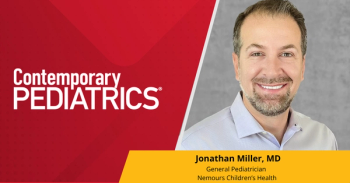
A very good day: What one patient can teach us
The high spirits and optimism of a patient receiving her latest in a long series of chemotherapy treatments provides perspective to a stressed-out nurse, and an enduring lesson in what truly matters.
NURSING IN A PREOPERATIVE UNIT
has its challenges. It is generally fast-paced and multitask-oriented. While providing emotional support, performing procedures, administering countless medications, and completing mounds of documentation, nurses must ensure that every patient is optimally prepared for his or her surgical experience.
Several years ago, I was having a particularly stressful and frustrating day. Staffing was low, the number of surgeries was excessively high, and our surgeons as well as our computers were having their “issues.” I had been at work for more than five hours without a break, and was becoming hungry and irritable. While finally on my way to the nurses’ lounge, I was called to the telephone to take report about another patient. With every nurse occupied, I grudgingly took the call.
The nurse on the oncology unit informed me that my new patient was coming for a portacath insertion. Several years ago, this patient had been treated for a lymphoma. Two years ago, she was treated for breast cancer. Now she had a lymphoma again. “I guess I shouldn’t complain about a bad hair day,” the nurse said.
As I hung up the phone, the nursing assistant wheeled in a stretcher with a patient sitting straight up. She was bald, pale, and thin. Her blue eyes were sunken, yet retained a slight sparkle. I was shocked when I realized my new patient was at least 25 years my junior. Somehow, during the report, I never was told her age, but based upon her history, I had imagined a much older lady.
“How are you today?” I asked. With a huge smile on her face, she replied, “Every day’s a good day. I’m alive, right?”
My heart dropped. Suddenly, my day was put into a new perspective. I marveled at her attitude but was internally embarrassed by my own.
After I prepared her for surgery, I went to the nurses’ lounge, where I quickly ate a piece of cheese and a slice of bread. I returned to the preop area and informed my nursing peers that I was officially “on break” and not to be disturbed. I pulled the curtain around the patient’s stretcher, sat next to her, and held her hand.
“I’m taking my break with you,” I said.
“Aren’t you hungry?” she asked. “No, I’ve already eaten,” I answered.
Then she said, “I just wish I was hungry. Every time I go on chemotherapy, I completely lose my appetite. But it will come back.”
Sitting uninterrupted at her bedside with her that day, holding her hand, was one of my most memorable nursing experiences. It was something so simple, yet so often impossible in a rapid, task-oriented work environment.
For 20 precious minutes, we talked about her life. I learned that she had been the recipient of medical and nursing care for the majority of her young adulthood. She was appreciative of all the nurses who had cared for her throughout the years, and she expressed a desire to someday become a nurse. During our conversation, I realized I had been a provider of nursing care since before she was born. It was not until that day that I truly appreciated the privilege bestowed upon me, and all that I had taken for granted.
As she was wheeled into the operating room, she leaned over the back of her stretcher. With a smile on her face, she waved and thanked me for all I did for her. What she did not realize was that she had done so much more for me.
One of the greatest disadvantages of working in a preoperative area is that our patient contacts are short-term, and we seldom learn about their outcomes. I never knew what happened to this patient, but I still think about her-sometimes several times a day. When times get frustrating and stressful throughout my day, I think about the attitude of a young lady needing chemotherapy for the third time. I can still see that slight sparkle in her sunken blue eyes and the beautiful smile of the person who taught me one of the greatest lessons in nursing, and in my own life.
When computers and surgeons have their issues and work demands seem insurmountable, I think about her words: “Every day’s a good day. I’m alive, right?” And now, when there are days at work when I am so busy that I may have to miss a meal, I know that it’s really OK.
RN
JOY SHILLER
has been a nurse for 43 years in a variety of perioperative settings. Currently, she is a staff nurse and clinical mentor at Methodist Hospital, Texas Medical Center, Houston.
Newsletter
Access practical, evidence-based guidance to support better care for our youngest patients. Join our email list for the latest clinical updates.








